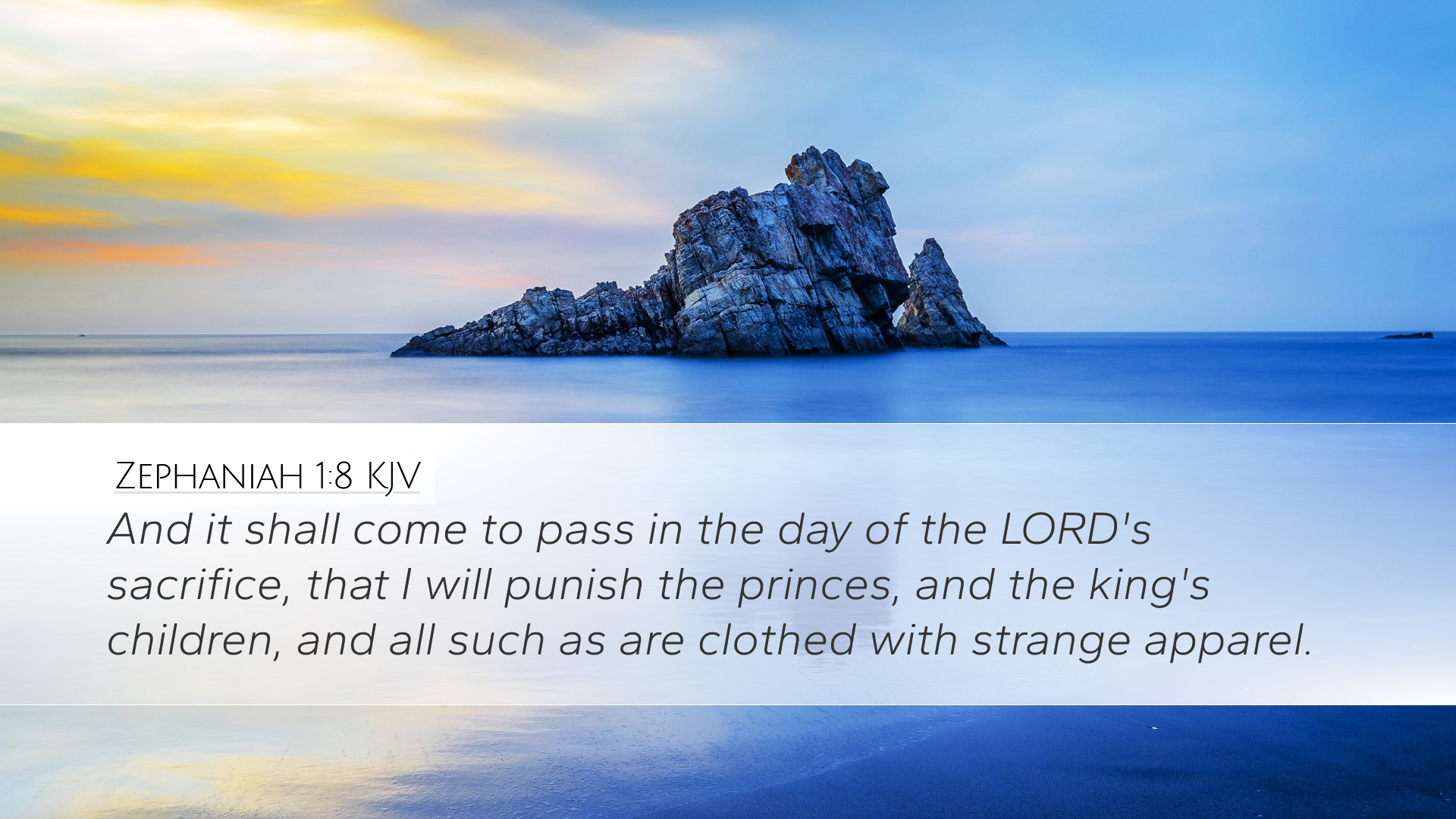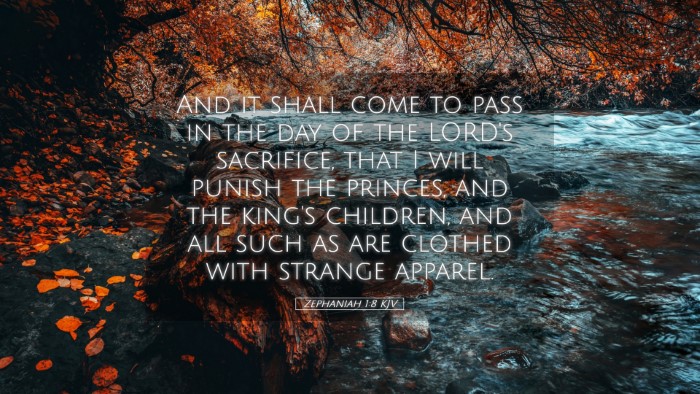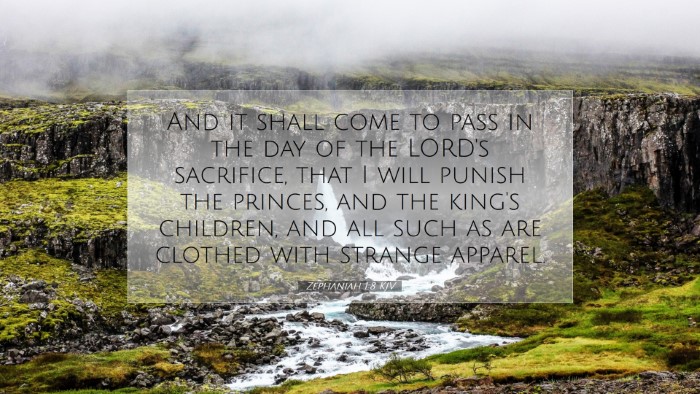Old Testament
Genesis Exodus Leviticus Numbers Deuteronomy Joshua Judges Ruth 1 Samuel 2 Samuel 1 Kings 2 Kings 1 Chronicles 2 Chronicles Ezra Nehemiah Esther Job Psalms Proverbs Ecclesiastes Song of Solomon Isaiah Jeremiah Lamentations Ezekiel Daniel Hosea Joel Amos Obadiah Jonah Micah Nahum Habakkuk Zephaniah Haggai Zechariah MalachiZephaniah 1:8
Zephaniah 1:8 KJV
And it shall come to pass in the day of the LORD's sacrifice, that I will punish the princes, and the king's children, and all such as are clothed with strange apparel.
Zephaniah 1:8 Bible Commentary
Commentary on Zephaniah 1:8
Text of Zephaniah 1:8 (KJV): "And it shall come to pass in the day of the Lord's sacrifice, that I will punish the princes, and the king's children, and all such as are clothed with strange apparel."
Introduction
The Book of Zephaniah is a prophetic text that speaks of the coming judgment of God against Judah and the surrounding nations due to their idolatry, immorality, and neglect of true worship. Chapter 1 sets the stage for God's impending judgment, emphasizing both the universality of sin and the specificity of God's actions against it. In this verse, Zephaniah captures the solemn occasion of the "day of the Lord's sacrifice," indicating a time of reckoning.
Contextual Analysis
To understand Zephaniah 1:8 fully, we must consider its context both historically and theologically. This phrase "the day of the Lord" is prevalent in prophetic literature, signifying a time when God intervenes decisively in human affairs. Matthew Henry emphasizes that this day is not merely a celebration but one of divine judgment, where God's holiness confronts human unrighteousness.
Historical Context
Historically, Zephaniah prophesied during the reign of King Josiah of Judah (640-609 BC). This was a period marked by corruption, idol worship, and moral decay. The princes and king's children mentioned in the verse represent the leadership and ruling class that had fallen into the same sin as the people they governed. Albert Barnes points out that it is particularly the leaders whose role it is to guide the people towards righteousness who will face judgment for their failures.
Theological Significance
The “day of the Lord's sacrifice” hints at grace hidden within judgment, a day that will expose not just outward sin but the inner realities of the heart. In this context, strange apparel signifies an outward expression of an inward condition. Adam Clarke elaborates on this idea, suggesting that it symbolizes the mixture of pagan influences into the worship practices of Israel, reflecting the people’s compromise with Canaanite religious customs.
Exegesis of Key Elements
- "The Day of the Lord's Sacrifice": This phrase introduces a critical moment for divine reckoning, indicating that the upcoming judgment can be likened to a sacrificial act, where that which is not holy will be set aside, emphasizing God's desire for purity among His people.
- "I will punish the princes and the king's children": This punishment serves as a reminder that leadership carries responsibility. Those entrusted with authority are judged more harshly due to their greater influence.
- "Clothed with strange apparel": Clothing here is symbolic. It represents the erosion of cultural and spiritual identity among God’s people—adopting foreign practices that lead them away from God’s covenant.
Application for Today
In light of this verse, pastors, theologians, and students should consider the implications of leadership and cultural identity within the church today. The following applications can be drawn:
- Leadership Accountability: There is a high call on Christian leaders to uphold the truth and lead by example, as they will be held accountable for leading others astray.
- Cultural Engagement: Believers must examine how cultural influences affect their worship and lifestyle. Are we adopting ‘strange apparel’ that might dilute our identity as children of God?
- The Hope of Redemption: While judgment is a central theme, it does not negate God’s desire for restoration. The fear of the Lord is the beginning of wisdom, leading to repentance and renewal in His people.
Conclusion
Zephaniah 1:8 is a powerful reminder that God is deeply concerned about His people’s fidelity to Him. As we study this verse, may we be challenged to reflect deeply on our own lives and communities, ensuring that we do not stray from the path that leads to life. The call to a holy life is timeless, inviting both correction and hope as we anticipate the Lord’s coming.


